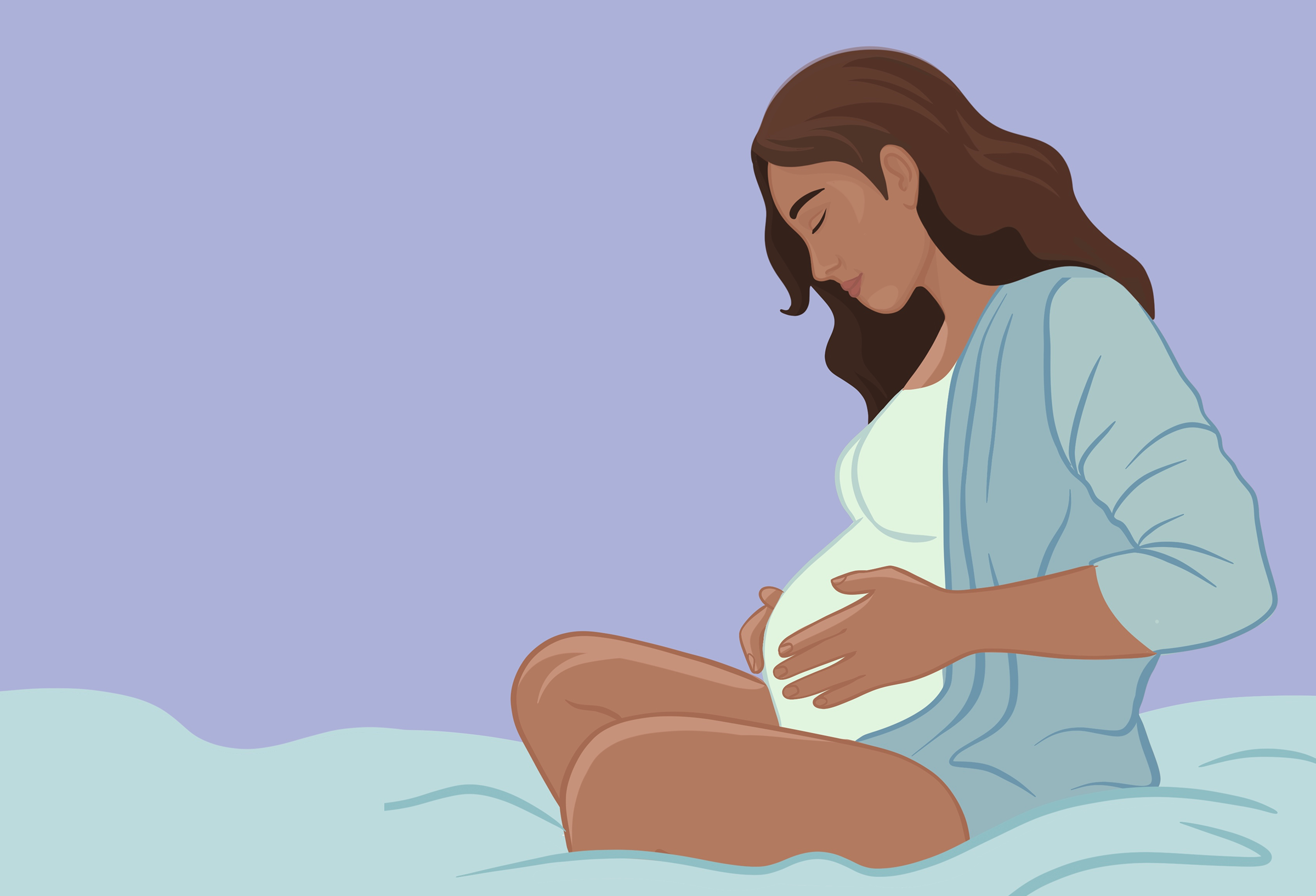


This goes against the rule that women naturally snore less than men. In the general population, around 20% of women across all ages snore, with even fewer of child-bearing age doing so.
“At nine-months pregnant, I have been keeping my poor partner awake with my late-night nasal symphony.”
Amongst the medley of changes happening during pregnancy, your new-found snoring is probably low on your list of priorities. But if you are pregnant and have recently found yourself snoring, you may have questions and concerns: why is it happening, is it something to be worried about and what can you do to stop it? Let SnoreLab talk you through it …
It is perfectly normal to snore whilst pregnant. Swelling in your upper airway, weight gain and breathing for two all work together to make you more likely to snore …
By the third trimester, your blood plasma volume is 40-50% more than it was before you were pregnant. On average, that is another liter and a quarter [2], or roughly 2 pints!
This is necessary to meet the increased demands of growing a human. It is also to protect you from potential blood-loss in labor. In the meantime, this vast expansion in blood volume has some swelling effects on much of your body, including the areas responsible for snoring.
Your airway becomes increasingly engorged with blood which causes it to narrow. This means the air passing through has more resistance. Additionally, you may notice that your nose has become quite congested. 42% of women in their third trimester have pregnancy-rhinitis, or nasal swelling [3]. This can cause you to breathe through your mouth and snore as a result.
“I am nearly nine-months pregnant and for months I have been suffering with even more nasal congestion than usual.”
Weight gain during pregnancy changes the way you breathe. As your uterus expands, it pushes upwards as well as outwards, meaning your diaphragm is pushed up too. This creates a lower residual volume in the lungs which can predispose your throat to obstruction and snoring [1].
When pregnant, not only are you eating for two, you are also breathing for two! Pregnancy induces some subtle changes in the way you breathe: increasing the respiratory drive and the amount of air you breathe in an out within a given time. This can create negative pressures which lead to snoring [1].
There is some research out there to suggest that pregnant snorers are at greater risk of complications compared to pregnant women who don’t snore. But don’t panic. These are links, not direct causes and can often be associated with issues other than normal pregnancy-onset snoring.
Two studies by a team of US scientists in 2012 [4] and 2013 [5] found that snoring expectant mothers were at greater risk of:
The important thing to note here is that these studies talk about “chronic snorers”. This refers to women who snored a lot before they were pregnant. If you are new to the snoring game since becoming pregnant, you needn’t worry.
Pregnant women who snore shouldn’t be overly concerned about these findings. Every woman is different, and whilst these studies attempted to adjust their methods in order to look at snoring alone, other health factors are bound to have an effect.
Indeed, being obese before pregnancy, having chronic conditions of the upper airway and smoking heighten women’s risk of snoring when pregnant. If these factors are applicable to you and your snoring has got much worse since becoming pregnant, it might be advisable to seek some guidance.
If you are concerned about your snoring, experience excessive daytime tiredness or think you are having apneic events, consult your antenatal care provider.
The good news is that if you have started snoring since becoming pregnant, it is very likely that once you have given birth, the snoring will stop.
In the meantime, as you navigate though the complexity of pregnancy, to give yourself one less thing to worry about and reduce your snoring, you can try a few things …
“Pregnant ladies, these are your cure to breathing again until the baby comes!”
“I am pregnant and suffering from a dry nose so a humidifier has been a life-saver!”
The changes that happen during pregnancy can come thick and fast, and having the added annoyance of snoring seems a bit unfair. Thankfully, if you have started snoring only since being pregnant, you are extremely likely to stop once you have given birth.
Whilst there is some science to suggest an increased chance of complications, don’t be too concerned if you find yourself snoring whilst pregnant, particularly if you are new to snoring. Try a few of our tips and if your snoring still causes problems, consult your antenatal care provider.